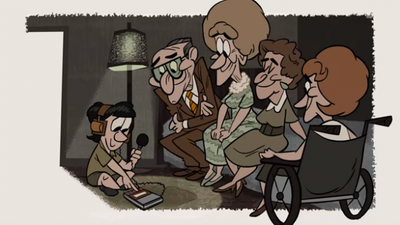Three members of Russian feminist punk rock group, Pussy Riot, were convicted of "hooliganism driven by religious hatred" on August 17th and sentenced to two years in jail for their crimes. The all-female group is known for staging impromptu performances ridiculing Russian politics.
The judge accused them of "crudely undermining the social order with a disrespectful and unpleasant performance," with their most recent stunt criticizing current Russian President Vladimir Putin. The trial has gained international attention as it challenges the right to freedom of expression.
Band supporters, family members and fellow anti-Putin protesters are claiming that the trial isn't about an unprecedented act of hooliganism by women, but instead the curtailing of freedom of expression, religion and speech in Russia. Since being charged with a hate crime, the band's supporters have rallied to accuse the Putin regime of disregarding not only the law, but any right to individual freedoms. Other demonstrators declared that Pussy Riot's performance was insulting to Orthodox tradition and that Putin's presidency is a miracle from God.
Pussy Riot's lawyers have appealed to the Russian legal system for leniency, despite the two-year sentencing being one year less than the prosecution recommended. Regardless, their trial in the court of public opinion continues to rage as Russians debate their country's role in censoring potentially offensive language.
Warm Up Questions
1. What does it mean to have "freedom of speech"?
2. What is a hate crime? Who or what is targeted?
3. What type of government does Russia have?
Discussion Questions
1. Do you consider the band's actions radical or offensive? Was the band wrongfully detained?
2. Should offensive language be protected under the law? Is there some speech that should not be protected?
3. What actions to do you believe separate a hate crime from an act of protest?
Additional Resources
The Dilemma of Protecting Free Speech
Supreme Court Considers Free Speech and Protests at Military Funerals
Supreme Court Weighs Privacy Against Free Speech in Funeral Protest Case


